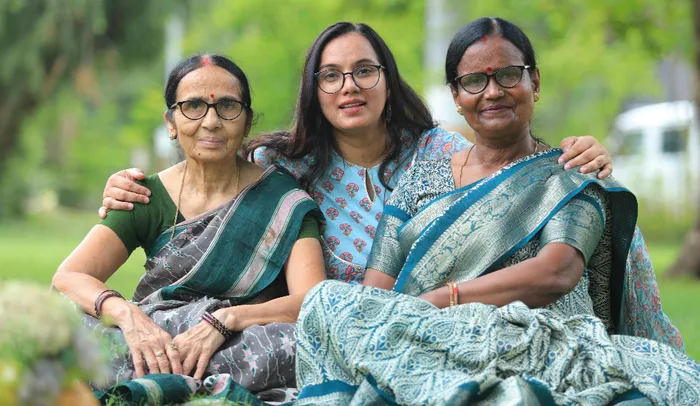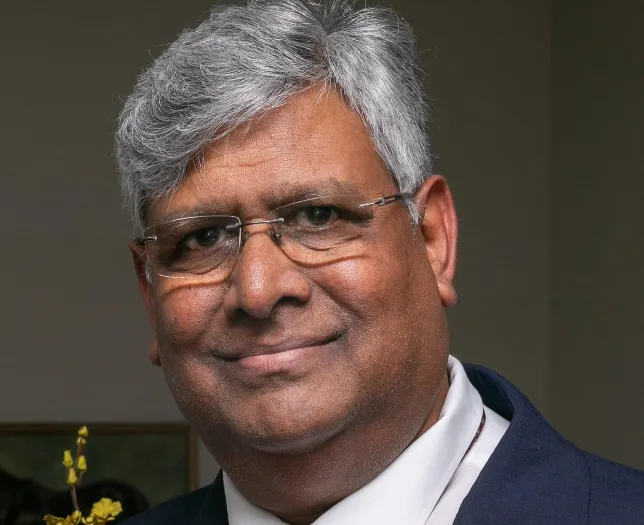Stop the cancer ravaging the spirt of ageing parents
Emotional detachment

The writer says some parents are forgotten in the rush of their children's ambition.
Image: the Amritdev/pexels.com
DAILY my phone buzzes with home remedies extolling turmeric for inflammation, honey for sore throats, and ginger for digestion.
Also, just about every spice, fruit and vegetable - from garlic and black cumin to green tea, cauliflower and strawberries - is widely promoted as both a curative and preventive agent against cancer.
Then there are WhatsApp videos that speak to another kind of cancer - the type that no amount of lemon juice, coconut oil or sugar elimination can help.
This is the cancer that is eating into every cell of countless mothers and fathers who feel like fading shadows in the lives of their own children.
And when the parents eventually succumb to the cancer caused by broken hearts, there are so many WhatsApp videos that recount the haunting phenomenon of children who once distanced themselves from their parents, returning only in death’s wake.
At the funeral, a faded letter, a cherished keepsake or even a front seat ride in a Rolls Royce hearse, pierces through years of silence, stirring guilt, grief, and longing. These moments often reveal the depth of unresolved love, reminding the children of what was lost and what was never said.
Jagadish "Jaggi" Vasudev, the Indian yogi, mystic and author also known as Sadhguru who established the Isha Foundation in Coimbatore, South India, recently joined many others in pointing out the growing disconnect between parents and children.
He said in his video that when parents felt irrelevant in their lives of their children, it was often because they had built their identities around being needed. For years, they’ve been the centre of their child’s world, providing care, guidance, and emotional support.
But as children grow into independent adults, that central role naturally fades. Sadhguru advocates graceful detachment which is a conscious shift from needing to be central to simply being present, without any expectations.
I have been practising graceful detachment long before Sadhguru’s bearded mouth advised how to cope with children who make as if their parents are irrelevant, inessential, peripheral.
I don’t want to come across as someone who merely preaches. I must also acknowledge with humility that I’ve been a source of worry for my parents.
Due to a complex interplay of marital obligations introducing new priorities and loyalties, evolving cultural expectations around independence, and mounting economic pressures, I gradually found myself pulling away from my parents. The shift wasn't abrupt, but rather a slow unravelling of the closeness we once shared. Fortunately in their twilight years, I self-corrected, but not to the extent that all strain in the relationship had disappeared.
This fills me with deep regrets. In recent years, owing to similar marital, cultural, and economic forces, I have seen my two sons gradually becoming emotionally distant. In response to this unexpected and unfortunate trend, I have adopted a new mantra: the lesser the expectation, the lesser the disappointment. My not-so-stoic wife, who wears her heart on her sleeve, feels the pain even more deeply. She often says: "I carried them for nine months, and that bond makes their absence cut even deeper."
The detachment of children contradicts the deep reverence for parents found in Hindu, Islamic and Christian teachings where the message is clear: honour your parents.
These are not mere words. They are divine mandates. Yet today, they are forgotten in the rush of ambition, amidst a pile of branded Gateway or Sandton City shopping bags, in the glow of gaming console screens, in the thunder of high-performance engines, in the loyalty to Goddess of fitness Virgin Active, in the cult of self.
It is becoming more frequent that I hear from friends and acquaintances that children, once the joy and comfort of ageing parents, now seem distant, distracted, and disinterested. The very hands that once administered Ponstan through fevered nights or stirred the favoured pot of mutton curry with melting potatoes, are now left empty, waiting for a call, a visit, a sign that parents still matter.
A point I must emphasise is that you must not visit your children in old age unless you’re ready to confront the silence. The silence that screams: You’re no longer needed. The glance that says: You’re interrupting. The hurried goodbye that feels like a mercy, because friends will be visiting soon for 12-year-old single malt whiskey around the Jetmaster four burner patio gas braai.
Once, your presence was sacred. Now, it’s tolerated. Once, your footsteps were followed. Now, they’re too slow to keep up. In your children’s world of deadlines and distractions, your stories are background noise. Your needs, a logistical puzzle. Your love, a relic of a slower time.
It’s a brutal truth that too many parents discover when it’s too late to rewrite the ending. So if you visit your children, go with eyes wide open. Because the hardest part isn’t being forgotten. It’s realising you’ve become a guest in a life you helped build.
I have spoken to many older individuals, some in their 60s, others in their 80s, who return from visits with their children feeling diminished. Demolished. Not uplifted. The avocado pears lovingly ripened, the pudina and peanut chutney you made, and a jersey painstakingly knitted for the grandchild, are all tossed aside like clutter in a spring cleaning, remnants of a love that now feels one-sided, discarded without a glance.
These old folk shuffle into their homes not with warmth, but with a quiet ache in their chest. Because the reverence they hoped for has vanished. The respect they once commanded has faded into polite tolerance.
We speak often of ageing, of the aches, pain and creaks of ill health, of retirement, of legacy. But we rarely speak of the quiet ache that comes with becoming irrelevant. Not obsolete in skill or knowledge, but in presence. In meaning. In the eyes of those we once lived for.
When you’re young and raising children, your life is tethered to theirs. You sacrifice sleep, ambition, comfort. You trade dreams for diapers, silence for chaos, and you do it willingly. Because love demands it. Because purpose is found in the giving. For years, nay decades, that purpose burns bright. You are the centre of your children’s world. The provider, the protector, the guide. The one who taught them to do shoelaces, tell the time, fashion a tie, light firecrackers. But time moves forward, and so do children.
Independence arrives not as a thief, but as a rite of passage. And suddenly, they don’t need you anymore. At least not in the way they once did.
When children say they “have their own lives now”, it is true. And they should. But must that life come at the cost of forgetting the very roots that nourished them?
Many parents say they are not asking for their children’s time, even though they gave them all of theirs. They are not asking for their children’s money, even though they spent theirs raising their offspring. All they are asking for is their children’s presence. Their voice. Their love.
Parents don’t want to be treated like discarded garments - worn, used, and tossed aside. Children must realise that rather than burdens, parents are blessings. They are the living memory of their childhood: the first tooth, the first wobbly steps, the first school report. Parents paid school fees, university fees, fetched and carried. They are the silent architects of their children’s success. Do children remember all this?
Children must understand that one day, they too will grow old. And when they do, may they not feel the ache of being forgotten. May they not sit by a window, waiting for a child who never visits; a WhatsApp message that never comes.
Before it is too late, we must collectively restore what the modern world has eroded. Let us bring back reverence, not just relevance. Let us teach our children that love is not seasonal like a Black Friday sale and family isn’t disposable like the packaging you rip open, use once, and toss into a DSW black bin bag without a second thought. Blood isn’t a subscription you cancel when it gets inconvenient.
And if your children come around, truly come around, welcome them with love. But not with need. Not with hunger. Because you are the root, not the branch. You are the foundation, not the rooftop decoration. They grew because you bent towards the sun. They thrived because you bled into the soil.
And when the final chapter of life is written, it is not the accolades or the bank accounts that matter - it is the hands they held, the hearts they honoured, and the love they gave back to those who gave them everything.

Yogin Devan
Image: File
Yogin Devan is a media consultant and social commentator. Reach him on: [email protected]
** The views expressed do not necessarily reflect the views of IOL or Independent Media.
Related Topics: